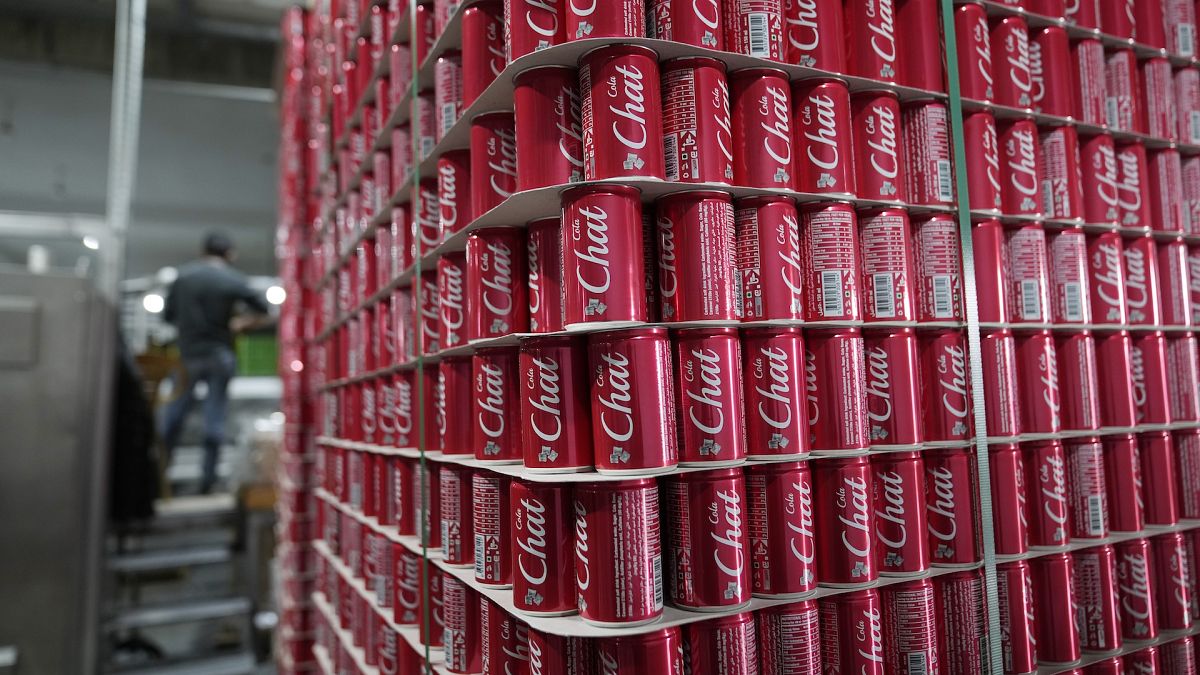Chat Cola, with a red tin and sweeping white script bearing remarkable resemblance to the iconic American soft drink’s logo, has seen its products explode in popularity across the occupied West Bank in the past year.
Palestinians in the Israeli-occupied West Bank are turning against Coca Cola and opting instead for a local drink – Chat Cola.
Chat Cola – its red tin and sweeping white script bearing remarkable resemblance to the iconic American soft drink’s logo – has seen its products explode in popularity across the occupied West Bank in the past year as Palestinian consumers, angry at America’s steadfast support for Israel in its war against Hamas in Gaza, protest with their wallets.
“No one wants to be caught drinking Coke”, said Mad Asaad, 21, a worker at the bakery-cafe chain Croissant House in the West Bank city of Ramallah, which stopped selling Coke after the war erupted. “Everyone drinks Chat now. It’s sending a message.”
Since the Hamas attack on 7 October 2023 triggered Israel’s devastating military campaign in the Gaza Strip, the Palestinian-led boycott movement against companies perceived as supportive of Israel has gained momentum across the Middle East, where the usual American corporate targets like McDonald’s, KFC and Starbucks saw sales slide last year.
Here in the West Bank, the boycott has shuttered two KFC branches in Ramallah. But the most noticeable expression of consumer outrage has been the sudden ubiquity of Chat Cola as shopkeepers relegate Coke cans to the bottom shelf – or pull them altogether.
Chat Cola’s gain is Coca Cola’s loss
“When people started to boycott, they became aware that Chat existed”, Fahed Arar, general manager of Chat Cola, told the Associated Press from the giant red-painted factory, nestled in the hilly West Bank town of Salfit. “I’m proud to have created a product that matches that of a global company.”
With the “buy local” movement burgeoning during the war, Chat Cola said its sales in the West Bank surged more than 40% last year, compared to 2023.
While the companies said they had no available statistics on their command of the local market due to the difficulties of data collection in wartime, anecdotal evidence suggests Chat Cola is clawing at some of Coca-Cola’s market share.
“Chat used to be a specialty product, but from what we’ve seen, it dominates the market”, said Abdulqader Azeez Hassan, 25, the owner of a supermarket in Salfit that boasts fridges full of the fizzy drinks.
But workers at Coca-Cola’s franchise in the West Bank, the National Beverage Company, are all Palestinian, and a boycott affects them, too, said its general manager, Imad Hindi.
President Donald Trump’s call for the mass expulsion of Palestinians from Gaza, which subsequently rephrased as a recommendation, has further inflamed anti-American sentiment around the region.
With orders pouring in not only from Lebanon and Yemen but also the United States and Europe, the company has its sights set on the international market, said PR manager Ahmad Hammad.
Chat Cola worked with chemists in France to produce the flavour, which is almost indistinguishable from Coke’s – just like its packaging. Chat’s lemon-lime soda reportedly also looks similar to Sprite.
In 2020, the Ramallah-based National Beverage Company sued Chat Cola for copyright infringement in Palestinian court, contending that Chat had imitated Coke’s designs for multiple drinks. The court ultimately sided with Chat Cola, determining there were enough subtle differences in the can designs that it didn’t violate copyright law.

